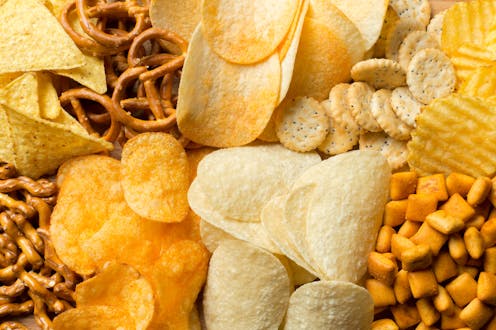Slashing salt can save lives – and it won’t hurt your hip pocket or tastebuds
- Written by Peter Breadon, Program Director, Health and Aged Care, Grattan Institute

Each year, more than 2,500 Australians[1] die from diseases linked to eating too much salt.
We shouldn’t be putting up with so much unnecessary illness, mainly from heart disease and strokes, and so many deaths.
As a new Grattan Institute report[2] shows, there are practical steps the federal government can take to save lives, reduce health spending and help the economy.
Read more: Essays on health: how food companies can sneak bias into scientific research[3]
We eat too much salt, with deadly consequences
Eating too much salt is bad for your health. It raises blood pressure[4], which increases the risk of heart disease and stroke[5].
About one in three[6] Australians has high blood pressure, and eating too much salt is the biggest individual contributor.
Unfortunately, the average Australian eats far too much salt – almost double[7] the recommended daily maximum of 5 grams, equivalent to a teaspoon[8].
Read more: Health Check: how much salt is OK to eat?[9]
Australian governments know excessive salt intake is a big problem. That’s why in 2021 they set a target[10] to reduce salt intake by at least 30% by 2030.
It’s an ambitious and worthy goal. But we’re still eating too much salt and we don’t have the policies to change that.

















